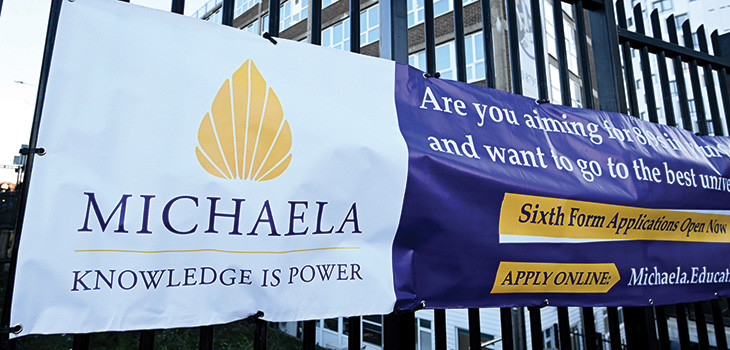
- It was not unlawful for the Michaela Community Schools Trust to prohibit pupils from performing prayer rituals on its premises.
According to Ofsted, Michaela Community School (a secular secondary free school for boys and girls in Wembley, London Borough of Brent) is outstanding. A school where: ‘Staff are driven by a shared commitment to giving pupils an excellent education, pupils rise to the challenges set by leaders and take their education seriously.’ Ofsted also found the school to be ‘very well led and managed’, with pupil behaviour exemplary and academic results exceptionally good.
The school was founded in 2014 by its headteacher, Katharine Birbalsingh, who estimates that 90% of its pupils are from ethnic minority backgrounds. And while half of the pupils are Muslim, the school also has large numbers of Sikh, Hindu and Christian pupils, broadly in line with the demographic profile of the school’s catchment area.
According to Birbalsingh, ‘a great part of the school’s success









